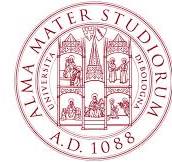Road vision
Topic leaders: Davide Maltoni (UNIBO) and Jean-Philippe Tarel (Uni. Eiffel)
The scientific field of the “road vision” topic covers researches on the acquisition, characterization and improvement of the visual information (which are the most important for road users) provided by the road infrastructure and equipment, especially in adverse lighting and weather conditions. It involves computer vision, photometry and colorimetry, human vision and perception. A problem of common interest in that field is to restore object visibility in an image in presence of fog using recent deep learning approaches. The so-called single image dehazing or defogging problem has been tackled intensively at Uni. Eiffel with a model-based approach, without machine learning. UNIBO has a longstanding and up-to-date expertise in learning and deep learning approaches applied to image processing. Improved solutions to the defogging problem are important for the performance of driving and driver assistance systems as well as road operation systems in poor weather conditions. In addition, image processing and photometric measurements know-how of both UNIBO and Uni. Eiffel could be associated to develop surface characterization techniques for road pavements, signs and markings. More generally, human vision and perception of the road (drivers, motorcyclists, cyclists, pedestrians, etc.) is a subject of interest on both sides, and will profit from the collaboration. There are already three co-supervisions of Master internships, and one co-publication in that field. There are perspectives to implement the Transpolis facility to explore the opportunistic use of road-based and vehicle-based sensors (cameras or others) for road maintenance and operation, and the SenseCity facility to test innovative vision sensors or pavement and sign materials in controlled environmental conditions.
